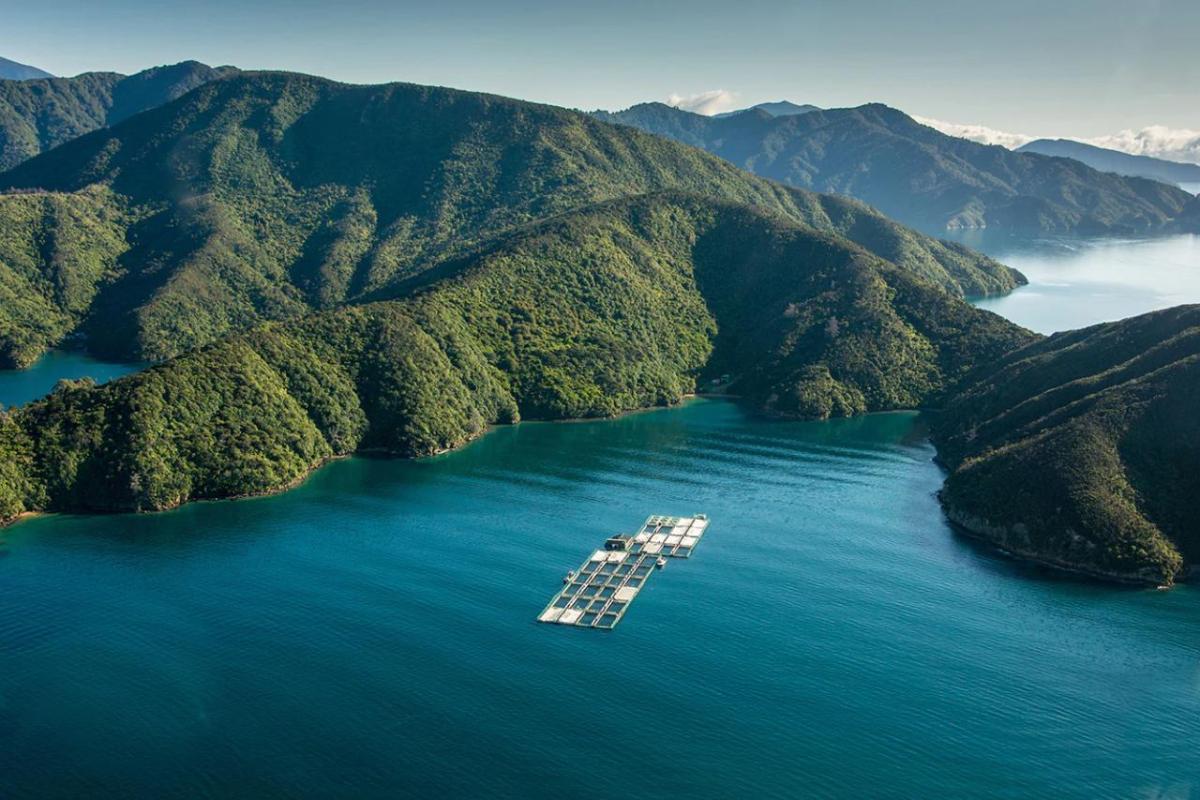
Sustainable Gastronomy Day 2024: Sands Advances Sustainable Dining Options
In establishing Sustainable Gastronomy Day, the UN acknowledges gastronomy as a cultural expression related to the natural and cultural diversity of the world, while highlighting the urgent need to pursue sustainable food production. Sustainable Gastronomy Day 2024 takes place amid the crises of climate disruption, nature loss and pollution. As such, sustainable gastronomy, which celebrates seasonal ingredients and producers while promoting actions to preserve wildlife and culinary traditions, is a critically important mindset.
Sustainable Gastronomy at Work
Sands' latest sustainable gastronomy initiative is at corporate headquarters in Las Vegas where the company's Café Veranda regularly offers corporate Team Members high-quality, sustainable dining choices. The café recently made the switch to using Ōra King salmon, a farm-raised salmon distributed by a New Zealand company that has prioritized sustainable husbandry practices and breeding expertise for 25 years.
Ōra King's producer, the New Zealand King Salmon Co. Ltd, has been certified under the Global Aquaculture Alliance for Best Aquaculture Practices.
Café Veranda's chef Raj Pawar, executive chef with 50 Eggs Hospitality Group, which operates Café Veranda, considers Ōra King to be the highest-grade and healthiest salmon to purchase and serve. The move to this salmon product also supports the company's priority on sustainable sourcing.
“Ōra King is now the best salmon we can get,” Pawar said.“So that's why we made the switch from wild to a farm-raised product. In order to use a wild salmon, you would actually have to freeze it when you get it fresh, then thaw it out and then, cook it shortly after.
“With the farm raised salmon, you can actually use it straight up. It's actually a better, healthier product. The reason why we use Ōra King is that it's currently the highest grade of salmon that you can get.”
Promoting Sustainable Food to Team Members and Resort Staff
Along with the switch to Ōra King salmon, Sands is working to educate corporate Team Members about the importance of this menu offering and how it fits into the company's sustainable food strategies by highlighting the switch to a more sustainable salmon product through internal Team Member channels.
In fact, education for Team Members and resort staff is an important part of the company's strategy to promote sustainable gastronomy practices both in Team Member dining rooms and in food and beverage operations. With more than 200 restaurants and a wide variety of dining facilities, Sands has a tremendous opportunity to make impact through education and awareness.
Last year, Marina Bay Sands hosted a Sustainable Food Showcase for more than 230 culinary and food and beverage Team Members to promote selection of sustainable and locally sourced foods in the resort's food and beverage offerings. The event featured 22 vendors that highlighted local and certified products ranging from low-carbon beef to locally produced leafy greens and soy wine.
The showcase resulted in procurement of several new products, including certified brown rice from Myanmar, locally grown leafy greens for the Team Member dining room and beer made from surplus food for the RISE Restaurant. Chefs also initiated more than 50 other inquiries to explore sustainable food possibilities.
Advancing Sustainable Food Procurement Practices
Sands also incorporates standards for sustainable food into its procurement policies and practices. One of the company's most recent steps is moving to sourcing cage-free eggs. In 2023, Sands instituted a new goal to source 100% cage-free eggs globally by 2028. The company began transitioning at select food and beverage outlets and for in-suite dining last year and will report progress toward its 2028 cage-free eggs goal in the company's annual environmental, social and governance report.
Sands is especially focused on advancing sustainable gastronomy in the seafood category, which has included promoting sustainable sourcing to chefs and eliminating or reducing certain types of seafood from company-owned restaurants and food service operations. For example, Sands established internal policies to eliminate sourcing of shark fin and restrict offering of bluefin tuna in its restaurants and catering operations. The company also targets sourcing of seafood certified by the Marine Stewardship Council (MSC) and Aquaculture Stewardship Council (ASC).
“We love the idea of sustainable gastronomy, both from a progressive culinary standpoint and as a core priority for our global sustainability commitment,” Katarina Tesarova, senior vice president and chief sustainability officer, said.“We've steadily increased our actions in this area, looking holistically at our food value chain – from the baseline with procurement and supplier initiatives to working with our teams on menu creation and finally to education of end consumers about their opportunities to dine with sustainability in mind. We take a full-circle approach to sustainable gastronomy.”
To learn more about Sands' sustainable food strategies and other environmental priorities, read the company's 2023 ESG Report: .

Legal Disclaimer:
MENAFN provides the
information “as is” without warranty of any kind. We do not accept
any responsibility or liability for the accuracy, content, images,
videos, licenses, completeness, legality, or reliability of the information
contained in this article. If you have any complaints or copyright
issues related to this article, kindly contact the provider above.

















Comments
No comment